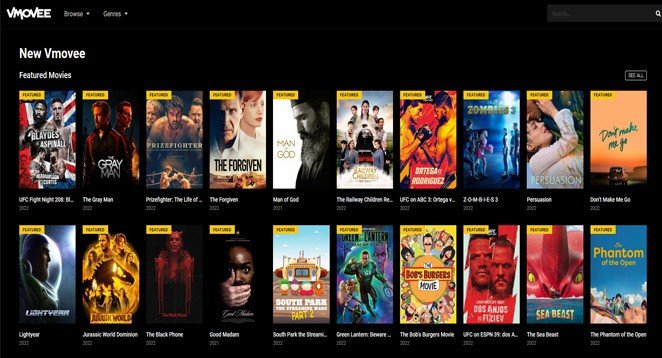Absence of KYC Verification Inviting Online Scams
KYC verification is the process of identifying and verifying a client’s identity, followed by a set of procedures to avoid doing business with people involved in terrorism, corruption, or money laundering, among other things.Where the emergence of the internet and the continuous technological advancements has significantly eased business life, it has also brought some detrimental impacts on them. Everyone wants to believe that a huge platform is a safe place where the scammers cannot intervene with their evil intention, but then again, a reality check is necessary. The ease brought by the digitisation processes comes with a cost. Where businesses have significantly benefited from it, the scammers are no way behind. Technological advancements have majorly assisted their scamming techniques.
Scammers Reaping Benefits of Technological Advancements?
It is true that the major technological trends have significantly impacted the businesses and optimised their processes, ultimately leading to increased efficiency. However, it is also true that the criminals have had the best time disrupting systems through advanced technology. The online scams have been there since forever but humans have now become an easy target to the fraudsters’ malicious attempts, mainly because the criminal minds have now developed advanced tactics replacing their traditional methods. Ranging from infecting the user’s systems with malicious software to phishing scams, from credential stuffing to fake robocalls, the criminals have devised quite witty techniques.
Coronavirus Scams:
No situation has ever been safe from the scammer’s evil interventions. The same happened during the global pandemic. Since the outbreak had restricted everyone to their homes and vaccines were not readily available everywhere, the scammers diligently followed the headlines and did not let the opportunity go to waste. Hence, the scams began. From issuing fake Covid vaccine certificates to presenting bogus test results and cures, they exploited the situation completely. A recent report in this regard generated the finding that nearly 676,000 covid related consumer complaints were reported involving stimulus payments and identity theft.
Fake Rapid Tests and Vaccine Certificates:
By closely following the headlines about medical and economic issues, the scammers have a detailed list of scams, ready to disrupt the normal operations by adapting each according to the raised issue. For example, when the covid omicron variant took over the world, the demand for covid tests increased considerably. The authorities noticed the scams and warned the consumers about the fake rapid tests kits being issued. In addition to that, fake vaccine certificates started regulating due to the absence of adequate identity verification systems. The scammers noticed the keenness of people to carry certificates in order to roam around freely so they presented them with fake ones. Know Your Customer KYC is the practice of businesses confirming their customers’ identities in line with legal requirements and current laws and regulations.
Fake Online Traders:
As per a report received by the Australian Competition and Consumer Commission (ACCC), a person fell prey to the scammer, faking to be a legitimate online trader. The victim received a robocall from the so-called trader who offered him unsolicited advice on investments and promised guaranteed returns. The victim fell prey to his evil intentions, invested a decent amount of funds and upon withdrawing the amount, was required to pay additional taxes which were not communicated at the beginning. That is how he lost $50,000.
Email Phishing:
Another common practice of scammers is email phishing through which they impersonate legitimate organisations through emails. The email is usually an exact copy of the authentic organisations and easily fools the user into giving in the details which are further used for identity theft. As per a case reported in Australia, a business became a victim of the scammer’s email phishing. The scammer had probably hacked the supplier’s email and contacted the business in the course of changing their banking details. Since the email seemed to come from an authentic source and had sufficient evidence of the change in banking details, the business gave in the details and sent an amount of $190,000 their way. They only got to know about the scam when the original supplier contacted them for the delta in payment. This particular scam was difficult to detect as the email matched the supplier’s email and the invoices were exact copies of the original receipts. The KYC verification procedure entails confirming that the client is who he claims to be and granting him access to the services or products he needs. This verification like KYC verification is done in a variety of ways, however not all of them meet legal standards. Like document verification, face verification etc.
Unauthorised Websites Fooling people into Paying Thousands of Dollars:
Another very common tactic adopted by fraudsters is to create fake websites that are first-class copies of authentic websites. This mostly happens in the travel industry where the scammers come up with too-good-to-be-true vacation packages and people actually fall for them. This particular scam rose in the pandemic days when lockdowns were uplifted due to vaccines and international traveling was resumed. The scammers grabbed the opportunity and created fake packages for the travelers who lost millions of dollars in this regard.
Rising Statistics of Online Scams:
During the pandemic online scams rose considerably as people became extremely addicted to social media and gaming websites. The minors also eagerly engaged with the internet without adequate parental control and the absence of ID and KYC verification solutions. Considering that, it was reported that around 40% of the people subjected to identity theft were those aged between 17-26, and nearly 18% were those aged 70+.
For more reviews visit Shuftipro Reviews.







